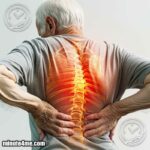Exploring Intermittent Fasting
Intermittent fasting (IF) is a dietary approach that alternates between periods of fasting and eating, tapping into our body’s natural fasting rhythms to achieve various health outcomes.
This method is not about which foods to eat, but rather when you should eat them.
The most commonly practiced IF methods include:
- Time-restricted feeding: This involves restricting daily eating to a specific time window, usually 8-12 hours, followed by fasting for the remaining 12-16 hours of the day.
- Alternate-day fasting: This method alternates between days of no caloric intake or significant calorie reduction, and days of eating normally.
- 5:2 diet: Participants eat normally for five days of the week and restrict calories to about 500-600 on the two non-consecutive fasting days.
These IF protocols are designed to induce periods of fasting long enough to deplete the body’s sugar stores and start burning fat, potentially leading to various health benefits.
Impact on Body Composition
Intermittent fasting’s impact on body composition is profound, influencing not just weight loss but also the ratio of fat to muscle in the body.
Let’s delve into the specifics:
Mediterranean Diet and Cancer Prevention
Unlock the power of the Mediterranean diet in your fight against cancer. Discover a flavorful journey through sun-drenched regions, packed…
Fat Loss through Intermittent Fasting
One of the primary reasons people turn to intermittent fasting is for fat loss.
IF helps shift the body’s energy source from glucose stored in the liver to fats, a process known as metabolic switching.
This switch enhances hormonal function to facilitate weight loss, including:
- Improving insulin sensitivity: Insulin levels drop during fasting periods, which helps prevent fat storage and encourages fat burning.
- Increasing growth hormone levels: This hormone aids in fat loss and muscle gain.
Studies have shown that intermittent fasting can lead to significant reductions in body weight and fat mass, often with greater efficacy than traditional calorie restriction methods.
Preserving Muscle Mass
While weight loss strategies can sometimes lead to muscle loss, intermittent fasting can be designed to preserve muscle mass.
This is particularly true when IF is combined with:
- Adequate protein intake: Consuming enough protein during eating periods supports muscle protein synthesis.
- Resistance training: Engaging in strength exercises can help maintain muscle mass during weight loss efforts.
The ability to maintain or even gain muscle mass while losing fat is what makes intermittent fasting particularly appealing to those looking to improve their body composition.
Mediterranean Diet and Bone Health
Unlock the secret to robust bones and a resilient skeletal system with the transformative power of the Mediterranean Diet. Dive…
Weight Loss and Metabolic Health
The benefits of intermittent fasting extend beyond mere weight loss; it also has a significant impact on metabolic health.
IF has been shown to:
- Enhance insulin sensitivity, reducing the risk of type 2 diabetes.
- Improve cholesterol levels, lowering the risk of cardiovascular diseases.
- Reduce inflammation, which is linked to a host of health issues, including heart disease and cancer.
By improving body composition and metabolic health, intermittent fasting can play a crucial role in long-term wellness and disease prevention.
Implementing Intermittent Fasting
Adopting intermittent fasting into your lifestyle requires thoughtful planning and consideration to ensure it aligns with your body’s needs and your daily schedule.
The transition to IF should be gradual, allowing your body to adjust without undue stress.
Keto Diet Benefits for Diabetes
Discover the powerful benefits of the ketogenic (keto) diet for diabetes management. Unleash the potential to control blood sugar, shed…
Meal Timing and Nutrient Intake
When practicing intermittent fasting, meal timing and nutrient intake during your eating windows become paramount.
Here are key strategies to maximize the benefits of IF:
- Plan Your Eating Window: Align your eating window with your natural hunger cues and daily activities. For instance, if you’re not a morning person, you might opt for a later eating window, such as 12 pm to 8 pm.
- Focus on Nutrient-Dense Foods: Prioritize whole foods, rich in vitamins, minerals, and fiber. Incorporate a variety of fruits, vegetables, lean proteins, healthy fats, and whole grains.
- Balance Your Macros: Ensure a good balance of macronutrients (carbohydrates, proteins, and fats) to support your energy levels, muscle maintenance, and overall health.
Bullet Points for Effective Nutrient Intake:
- Protein: Aim for high-quality protein sources like lean meats, fish, legumes, and dairy to support muscle health.
- Carbohydrates: Choose complex carbs, such as whole grains, for sustained energy.
- Fats: Incorporate healthy fats from avocados, nuts, seeds, and olive oil for hormone health and satiety.
- Hydration: Stay well-hydrated with water, herbal teas, and other non-caloric beverages, especially during fasting periods.
Balancing IF with Exercise
Exercise is a critical component of a healthy lifestyle and can enhance the effects of intermittent fasting on body composition.
However, timing and type of exercise are important factors to consider:
- Strength Training: Engage in resistance training 2-3 times a week to maintain muscle mass. Schedule these sessions during or shortly after your eating windows to utilize nutritional support for muscle recovery.
- Cardiovascular Exercises: Cardio exercises, such as running, cycling, or swimming, can be done fasted, especially if they’re moderate in intensity. Some studies suggest that fasted cardio may improve fat utilization.
| Exercise Type | Recommended Timing | Benefits |
|---|---|---|
| Strength Training | During or after eating windows | Maximizes protein synthesis, supports muscle growth |
| Cardio | Fasted or during eating windows | May enhance fat burning if done fasted; flexibility based on personal preference |
Scientific Evidence and Research
The effectiveness and health implications of intermittent fasting are supported by a growing body of scientific research:
- Weight Loss and Fat Loss: Numerous studies confirm that IF can lead to significant reductions in body weight and fat mass, with some evidence suggesting it may be more effective than traditional calorie restriction for fat loss.
- Metabolic Health: Research indicates improvements in insulin sensitivity, reductions in blood sugar levels, and improved lipid profiles with IF.
Research Highlights:
- A systematic review found that intermittent fasting can lead to weight loss and improvements in metabolic health markers.
- Another study highlighted the potential for IF to preserve muscle mass during weight loss, especially when combined with resistance training.
Health Benefits and Risks
Benefits:
- Weight loss and improved body composition
- Enhanced metabolic health
- Potential for increased longevity
- Improved brain health
Risks and Side Effects:
- Initial hunger and cravings
- Potential for overeating in eating windows
- Possible headaches, dizziness, or irritability during the adaptation phase
It’s important for individuals with pre-existing health conditions, such as diabetes, or those who are pregnant or breastfeeding, to consult a healthcare professional before starting IF.
Conclusion
Intermittent fasting represents a flexible, sustainable approach to eating that can offer numerous health benefits, from weight loss and improved body composition to enhanced metabolic health.
However, its suitability and effectiveness are highly individualized:
- Consult a Healthcare Professional: Before beginning any fasting regimen, especially if you have existing health conditions.
- Consider Your Lifestyle and Preferences: IF should complement your lifestyle, not complicate it. Choose a fasting protocol that feels manageable and aligns with your daily routine and health goals.
Incorporating IF into your life can be a powerful tool for health and wellness, provided it’s approached with mindfulness, planning, and a focus on balanced, nutritious eating during your feeding windows.



